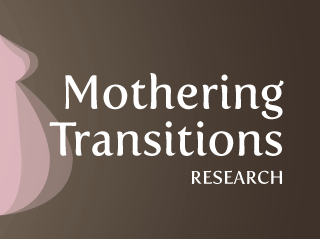Impact of Maternal and Paternal Postpartum Depression (IMPACT Study)
Objectives: (1) to describe the prevalence, course, and relationship between maternal and paternal postpartum depression(PPD); (2) to describe the clinical presentation of paternal PPD; (3) to examine parental PPD moderators and mediators in relation to infant development; (4) to examine the effect of single (maternal or paternal) versus dual (maternal and paternal) parental PPD on infant development; (5) to psychometrically test the EPDS (Edinburgh Postnatal Depression Scale) with fathers from diverse ethnicities; and (6) to establish a cohort of families to be followed beyond the first 2 years postpartum to determine longer-term effects of single and dual parental PPD on child development.
Background: According to the WHO, by 2020 depression is projected to carry the highest disease burden of all health. It affects individuals throughout the lifespan, with research suggesting an increased risk for both women and men during the postpartum period. Unfortunately, it is well established that depression in parents negatively affects children. As evidence accumulates that early childhood adversity is significantly related to negative mental and physical health across the lifespan, attention to the early infant environment becomes even more urgent. This novel study proposes to examine complex mechanisms related to the familial impact of parental (mother and father) depression in the first two years of a child’s life. Several lines of evidence point to the immediate need for this study. First, research now suggests that maternal PPD treatment alone may be insufficient to improve child outcomes. Increasingly, interventions for mothers with PPD have focused on parenting behaviours. A greater understanding of how PPD influences parenting behaviours is needed for effective interventions to be developed. Second, it is becoming evident that child outcomes are not solely dependent on the mother. A substantial number of new fathers experience PPD and they also can have a serious negative influence on child outcomes. However, very little is known about the prevalence, incidence, clinical presentation, and consequence of paternal PPD. Research that examines how to effectively assess for paternal PPD in a multicultural sample and how it influences paternal parenting behaviours is urgently needed. Third, almost nothing is known about “dual parental PPD” where both parents suffer from PPD at the same time. There is good evidence that when one parent suffers from PPD, the other parent is significantly more likely to become depressed. The causal impact of dual parental PPD on child development has not been established. Research is needed that focuses on parents together to examine the onset, joint course, and consequences of PPD. Lastly, the largest longitudinal study of child health and adjustment in Canada is the National Longitudinal Survey of Children and Youth (NLSCY), administered by Statistics Canada. Unfortunately, methodological limitations render the NLSCY unfeasible for examining the combined effects of maternal and paternal depression on children. The proposed research plan overcomes all the NLSCY shortcomings.
Design Overview: The proposed study will incorporate a longitudinal design where new mothers and fathers will be followed for the first 24 months postpartum. Following recruitment from three large, tertiary care hospitals, recruitment nurses will provide all potentially eligible in-hospital postpartum mothers with a detailed study explanation and ensure eligibility. Mothers and corresponding fathers providing consent to participate will complete baseline information. All participants will be followed–up at 3, 6, 9, 12, 18, and 24 months postpartum either by telephone interview or via web-based questionnaires.
Relevance: The study results will make substantive contributions in eight areas: (1) provide information about the prevalence and course of PPD among a multicultural sample of mothers and fathers across the first 2 years postpartum; (2) provide information about prevalence rates of dual depressed parents and the relationship between maternal and paternal PPD; (3) increase our knowledge about the clinical presentation of PPD among fathers; (4) provide causal data about parental PPD moderators and mediators in relation to infant development; (5) advance our understanding of the effects of single versus dual parental PPD on infant development; (6) establish the sensitivity and specificity of the Edinburgh Postnatal Depression Scale (EPDS; the most widely-used international measure to assess depressive symptoms in postpartum women) in detecting PPD among diverse ethnic fathers; (7) increase our knowledge in relation to PPD screening procedures for families including fathers; and (8) guide the development of a randomized controlled trial to evaluate interventions specifically designed to target dual depressed parents.
